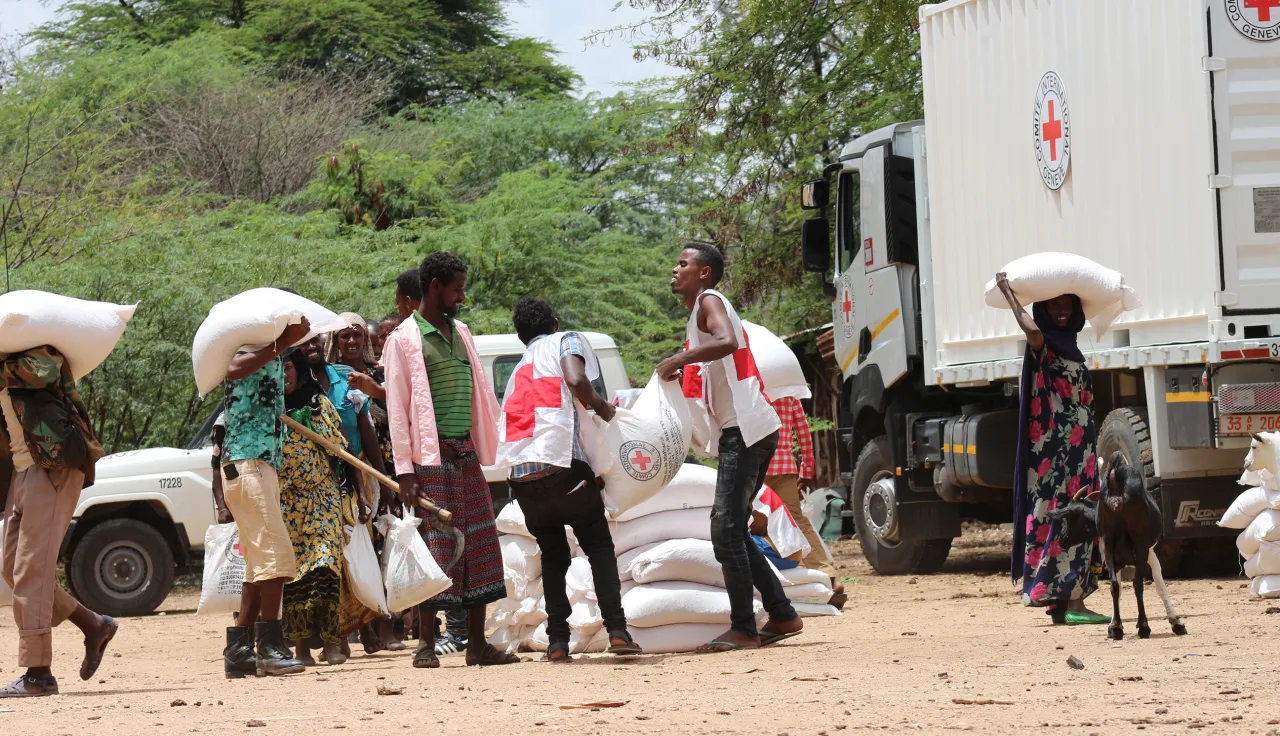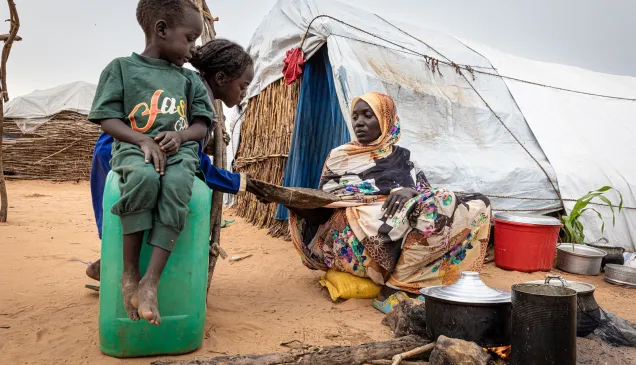Ethiopia: Risk of wider humanitarian emergency as fighting breaks out in the north of the country

In early November, escalating tensions between the national government in Addis Ababa and the northern region of Tigray boiled over into armed clashes. While a telecommunications blackout makes it difficult to fully assess humanitarian needs, ICRC's teams in Addis Ababa and Mekelle, the capital of Tigray, are closely following developments and mobilising staff and medical supplies.
The fighting comes on top of recurrent violence that has flared around the country, triggering death, injury and displacement. The country remains home to one of largest displacement crises in the world, with hundreds of thousands of people uprooted from their homes by violence and climate shocks.
"We are deeply concerned that a military escalation in northern Ethiopia could trigger a wider humanitarian emergency in which people are displaced from their homes and unable to meet their basic needs. This can be averted if people's lives and property are protected and respected." – Katia Sorin, head of delegation, ICRC Ethiopia
A military escalation in northern Ethiopia could trigger a wider humanitarian emergency.
We're closely following developments and are ready to provide humanitarian assistance as needed. https://t.co/1S3ld8pHHe— ICRC (@ICRC) November 7, 2020
Tigray and northern Ethiopia
Clashes are reported to be taking place along the border area with Amhara in southwestern Tigray, though the impact on communities remains unclear with telecommunications down. ICRC's teams in Addis Ababa and Mekelle, the capital of Tigray, are closely following developments and mobilising staff and medical supplies.
"Unimpeded access for Red Cross ambulances and teams to the wounded and those in need will be crucial if clashes escalate." – Katia Sorin, head of delegation, ICRC Ethiopia
Recurrent violence
Ethiopia is home to one of the world's largest, but least-known displacement crises in the world. Hundreds of thousands of people have been forced from their homes because of inter-communal violence in different parts of the country. Many shelter in whatever open buildings they can find, like schools and clinics, and sleep on the floor with no mats or blankets with little clean water or food. Health care is often a struggle as clinics can be either over-burdened or access to health care facilities and ambulance services is hampered by violence. At the same time, communities are often battered by climate shocks like floods, droughts and recently locusts, often triggering further displacement and deepening food insecurity.
“The seed support has paramount importance in restoring our livelihood,” says Abrham a member of conflict-affected community in west #Ethiopia. With @EthioRedCross, we have reached more than 7,000 conflict-affected households with two rounds of support.https://t.co/qontKifBbw
— ICRC Ethiopia (@ICRCEthiopia) October 23, 2020
ICRC's work in Ethiopia
The ICRC has had a long presence in Ethiopia and is helping communities impacted by different situations of violence in Tigray, Amhara, Oromia, Benshangul-Gumuz and Somali Regional State.
This includes ensuring people have access to water and sanitation facilities, distributing household items, and providing cash assistance. We also work to rebuild and protect livelihoods by giving people seeds and farming tools and vaccinating livestock.
Together with the Ethiopia Red Cross, the ICRC helps people search for missing family members separated by armed conflict or violence or migration and whenever possible reunite with them in-person or reconnect through letters and phone calls. In response to the military escalation in northern Ethiopia, the ICRC has activated a restoring family links hotline. Anyone looking to contact their family can call +251943122207.
We also visit places of detention under federation and regional prison and police authorities to ensure humane treatment and conditions for all detainees. Our teams also worked with 31 places of detention to lower the risk of COVID-19 by providing 89,000 bars of soap, setting up handwashing stations and sharing information with detainees on how COVID-19 can be prevented.
Eleven places of detention throughout six regions in Ethiopia received medical and non-medical items in support of the fight against the spread of #COVID19 in prisons.
More details
https://t.co/TbXTvdgpIE— ICRC Africa (@ICRC_Africa) September 8, 2020
Our response in prisons to COVID-19 was part of a wider effort to curb the spread of the disease in Ethiopia. This included providing personal protective equipment to staff working in 14 isolation centres and four primary health care facilities as well as infection prevention and control materials to 17 COVID-19 treatment centres.



